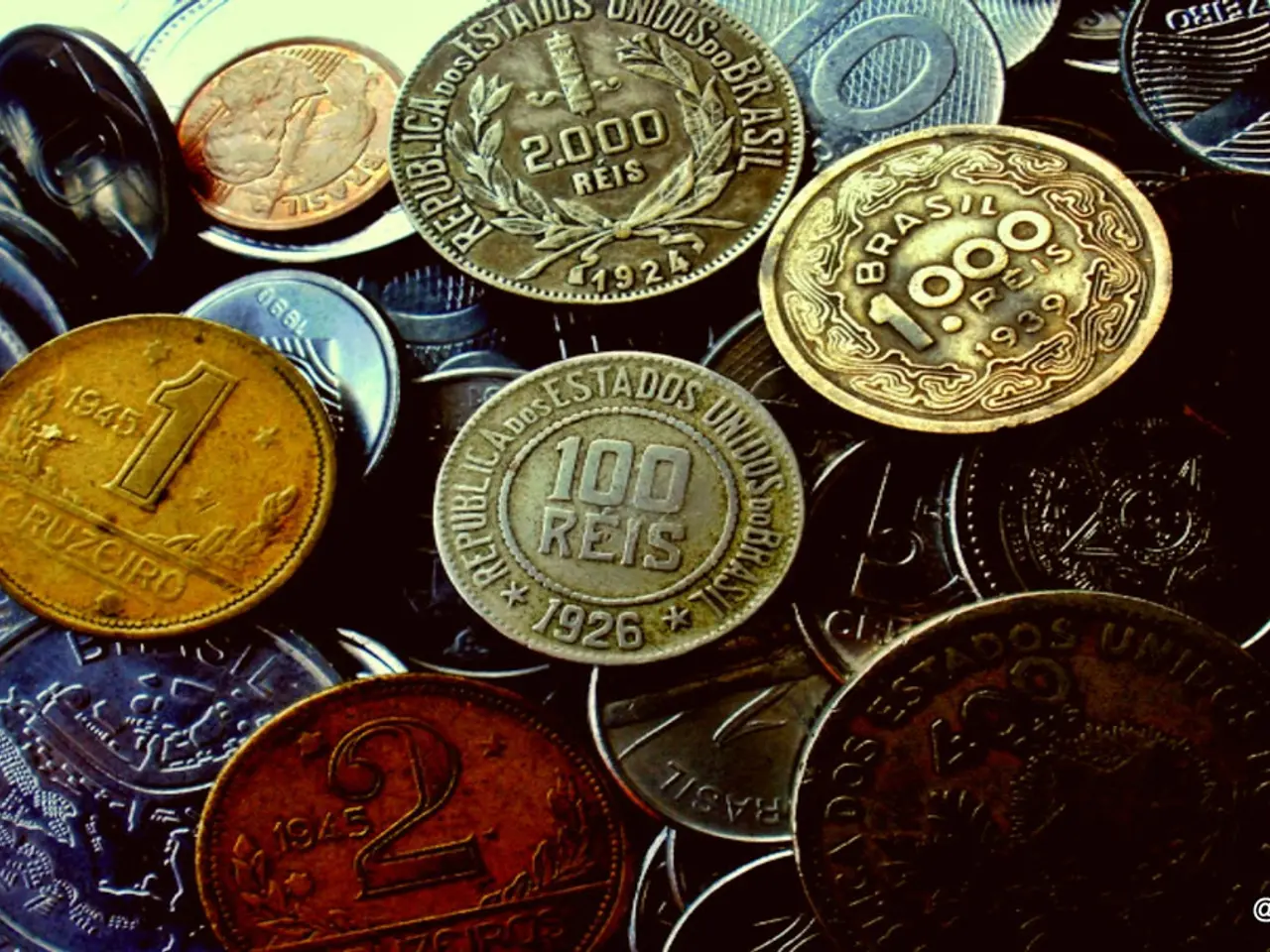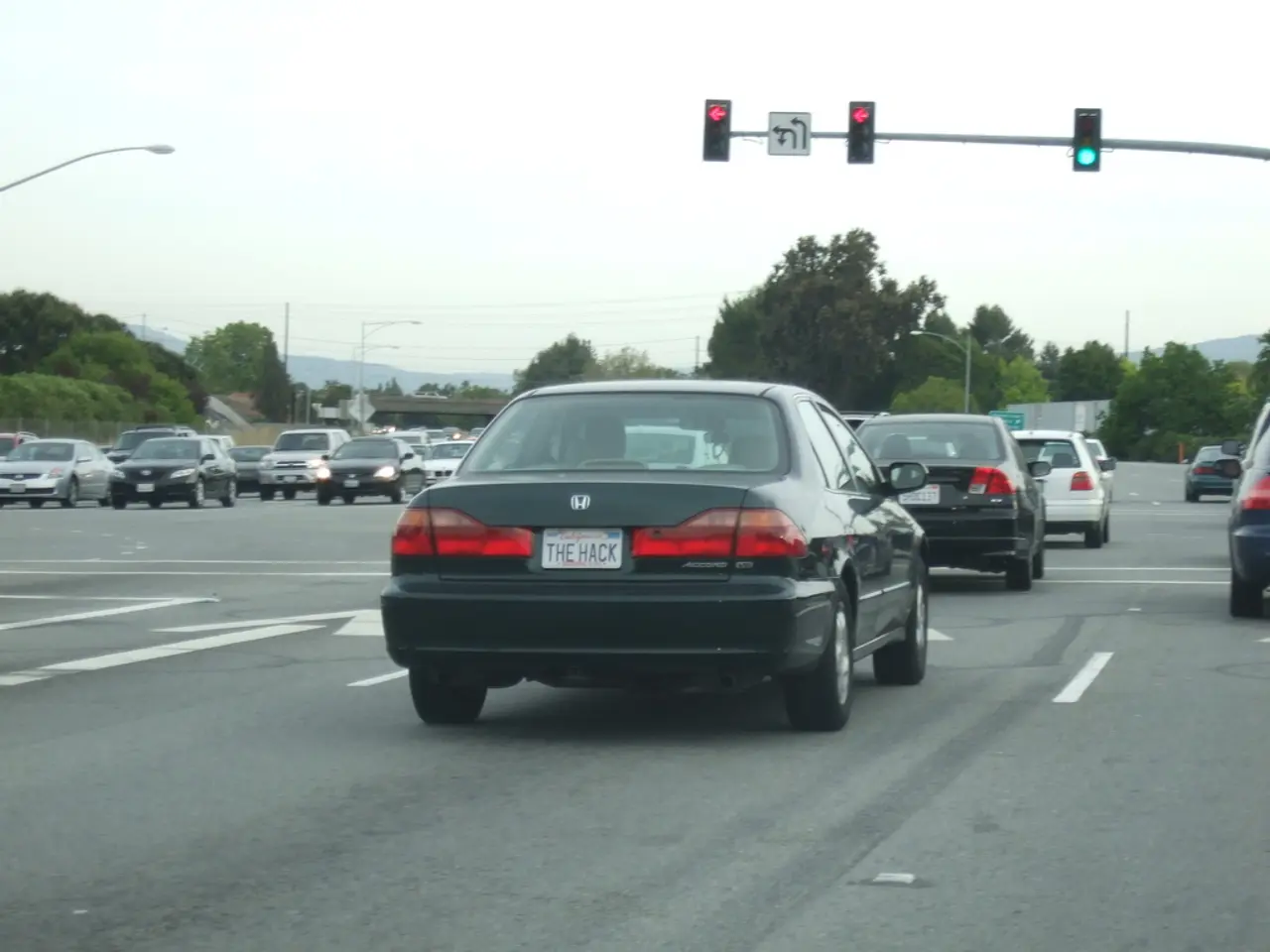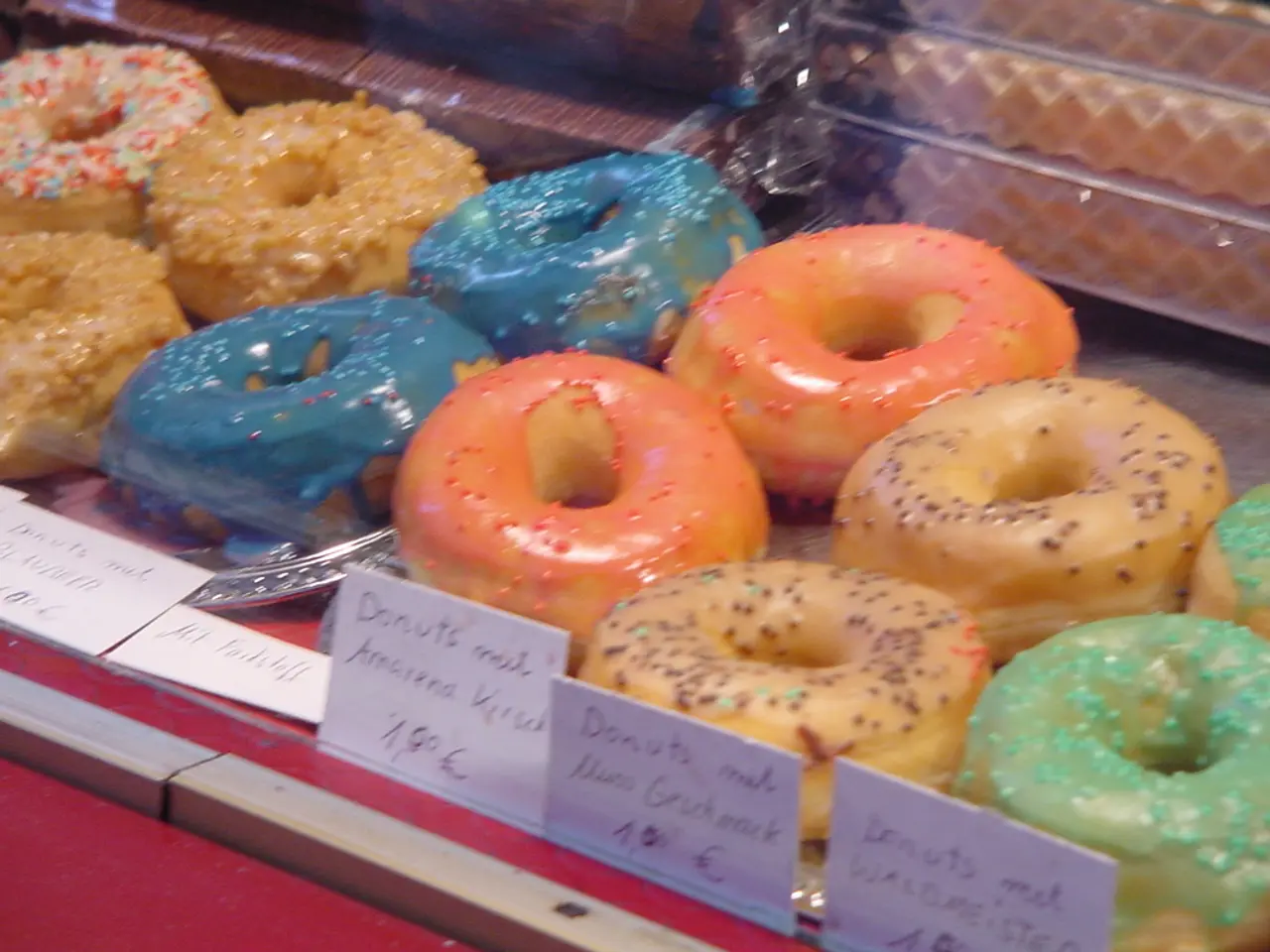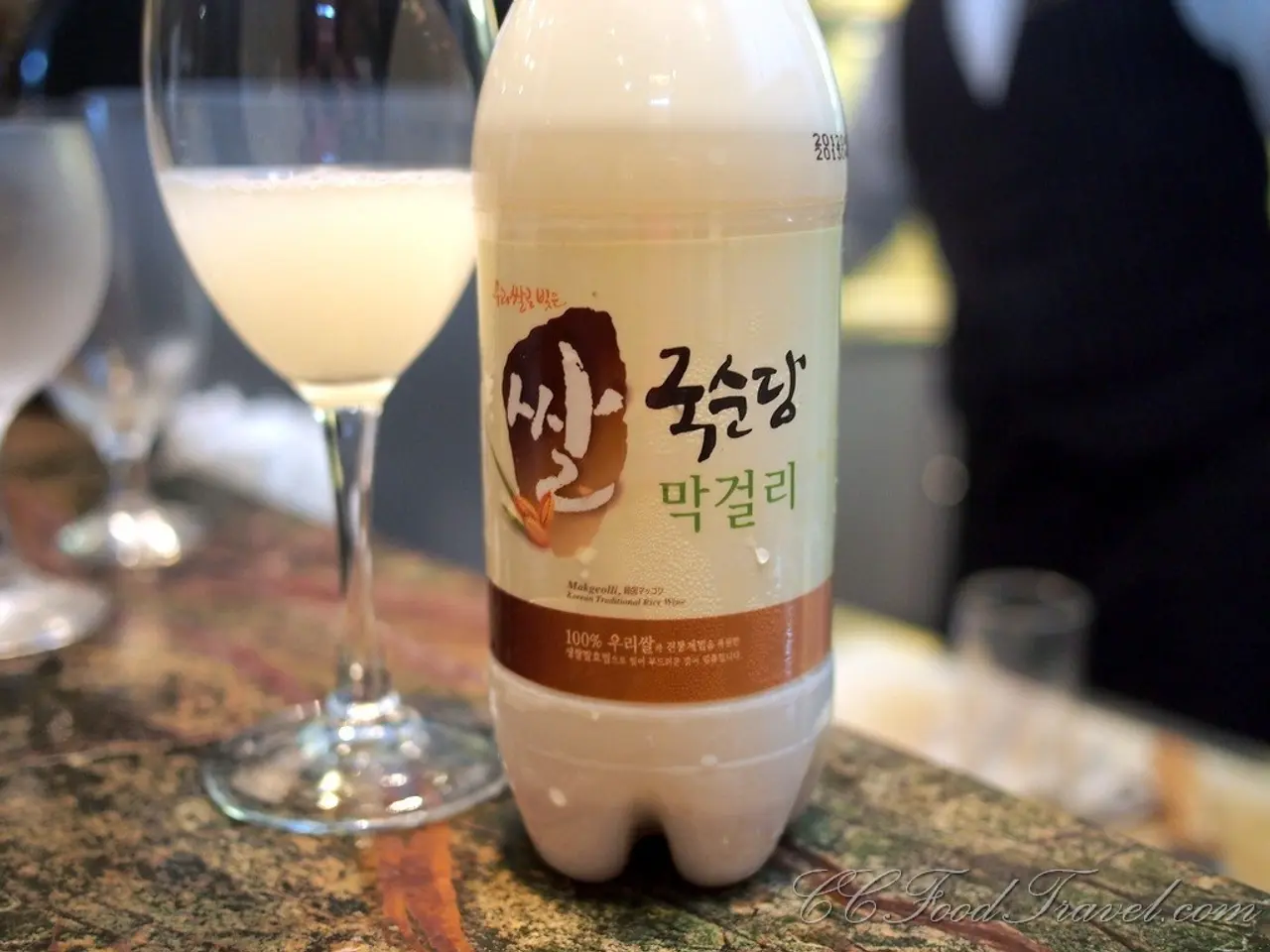Escalating economic woes in Russia continue to mount.
Article:
The Potato Crisis in Russia: An Unraveling Economy
Get ready to tuck into your potatoes twice a week, or risk gaining a few extra pounds, says Alexander Lukashenko, the "potato dictator" of Belarus. Such advice might be a necessity for Russians soon, as the country grapples with a dwindling agricultural sector and a struggling economy.
In Russia, a country with the largest agricultural land area, potatoes and onions have disappeared from the shelves. The potato scarcity is palpable even to Putin himself; his recent complaint highlights the issue. Sugar beets and some vegetable varieties are also in short supply. Last year, potato prices nearly tripled, onion prices doubled, and cabbages became over 50% more expensive.
The increase in food prices is a primary driver of inflation in Russia, currently at 9.6%. The central bank is trying to curb inflation with a high-key interest rate of 20%. However, this approach has produced unintended side effects.
Economy Minister Maxim Reshetnikov publicly expressed concerns about the domestic economy during the recent St. Petersburg International Economic Forum. According to Reshetnikov, the slowdown in the economy is becoming more apparent, and they are at the verge of transitioning into a recession. High-interest rates are discouraging entrepreneurs from investing, he said, and investments in the third and fourth quarters might be below last year's level.
The central bank governor, Elvira Nabiullina, defended against accusations of poor monetary policy but acknowledged difficult times ahead. The Russian economy has persisted due to the shift towards war production, benefiting from funds from the National Wealth Fund and banking system reserves, but these resources are nearly exhausted.
Russia's economy has held up surprisingly well since Putin's decision to attack Ukraine, despite extensive Western sanctions. This resilience primarily stems from a rigid diversion towards war production. Sergei Chemesov, Putin's ally and leader of the defense industry, boasted a massive increase in ammunition and weapons production compared to 2021. While the defense industry is flourishing, the civil sectors are struggling.
The construction and real estate sector as well as the automobile industry are in crisis. Car production has slowed since Western manufacturers turned their backs on Russia. The Lada producer Avtovaz, under the Chemesov empire, has failed to fill the void left by Western automakers. The company's latest model, the Lada Azimut, is set to go into production next year, but previous models are still piling up in warehouses due to a lack of demand. New car sales in Russia have plummeted significantly. In the first five months of the year, only around 450,000 vehicles were sold, a 26% decrease. Avtovaz predicts a 25% market decline for the whole year.
The agricultural machinery manufacturer Rostselmasch is also in crisis. The company has recently sent more than 15,000 employees on forced leave. For the workforce, this means uncertainty rather than relaxation, as it is unclear whether production will resume afterward. Short-time work was introduced in March, and 2,000 workers were laid off in April.
Paradoxically, Rostselmasch cannot take advantage of the far-reaching retreat of Western competitors. Sales of combine harvesters have stagnated: after a 20% market drop last year, there has been a further decline of 10 to 15% this year. Around 40% of Rostselmasch's annual production is currently in storage. Farmers lack the funds for new equipment, and high loan interest rates and rising production costs are causing them difficulties.
In addition to the agricultural machinery crisis, the agricultural sector faces supply chain disruptions due to input shortages, labor deficits, and rising costs. Inflation, driven by the overall economic crisis, makes farming inputs costlier, squeezing farmers' margins and reducing profitability. Inflation also reduces consumers' purchasing power within Russia, affecting domestic demand for agricultural products.
With the agricultural sector struggling, the government hopes for a better harvest next year to temporarily lower prices. However, if the harvest does not meet expectations, Russians might find themselves relying on potatoes to get them through the year. This dependency on this simple tuber could have severe implications for the country's food security and economic stability.
References:- "Russia Steps Up Military Spending, Sacrifices Social Welfare," Carnegie Moscow Center, 18 April 2022, https://carnegie.ru/2022/04/28/russia-steps-up-military-spending-sacrifices-social-welfare-pub-85203- Russia's Agriculture Struggles with Supply Chain Disruptions and Inflation- "How Sanctions are Strangling Russia's Finances," The New York Times, 26 April 2022, https://www.nytimes.com/2022/04/26/business/economy/russia-sanctions-finances.html- "Russia's Slowdown Intensifies Amid Signs of a Looming Recession," Bloomberg, 17 June 2022, https://www.bloomberg.com/news/articles/2022-06-21/russia-s-slowdown-intensifies-amid-signs-of-looming-recession- "Inflation Rising in Russia Amidst Collapsing Ruble," Al Jazeera, 23 June 2022, https://www.aljazeera.com/economy/2022/6/23/inflation-rising-in-russia-amidst-collapsing-ruble
- Despite the agricultural sector's struggles and increasing food prices, it is essential for various employment policies within the food-and-drink industry to address the potato scarcity, as shown by the disappearance of potatoes from the Russian shelves.
- As employment opportunities dwindle in the beleaguered agricultural sector, it's crucial for the government to implement business-friendly finance policies to encourage entrepreneurship and investment, which could help stabilize the economy and improve overall lifestyle conditions.




